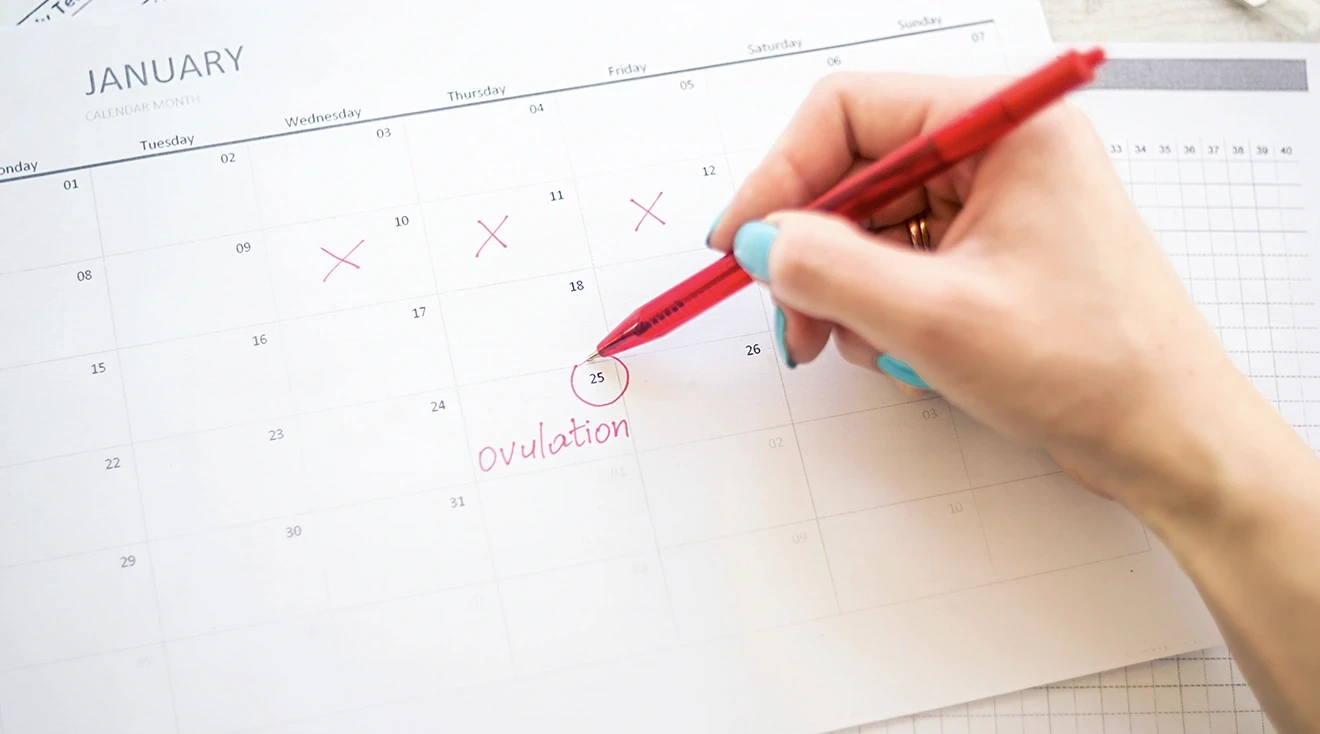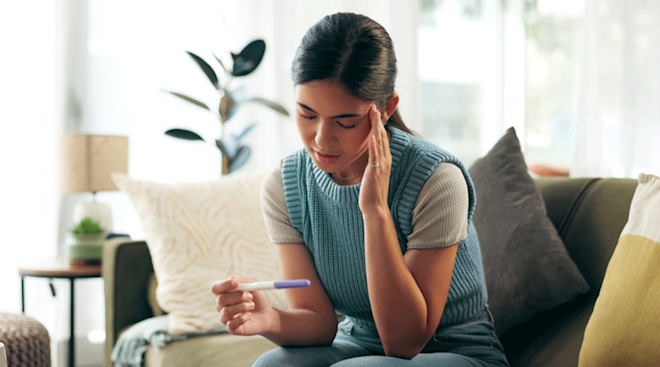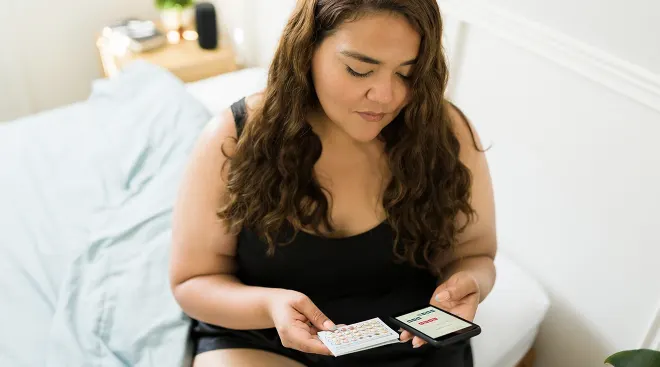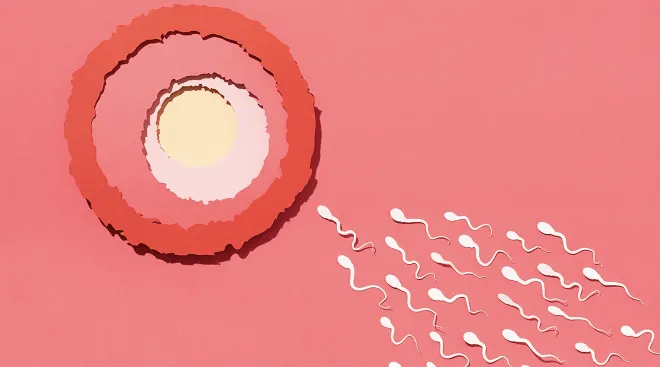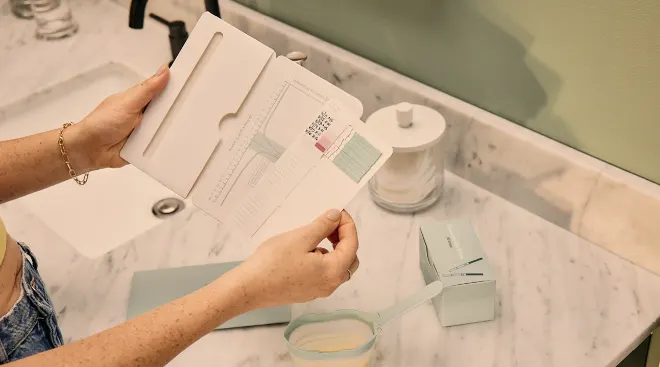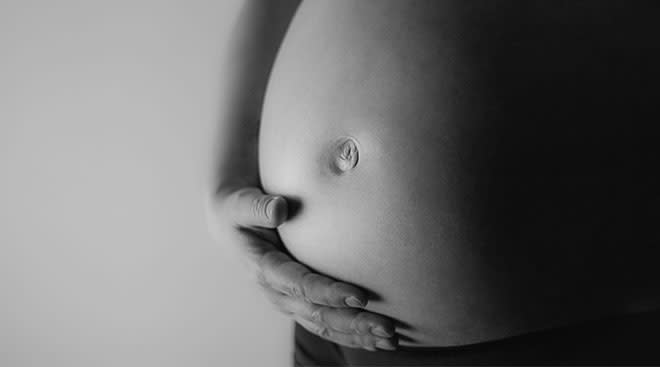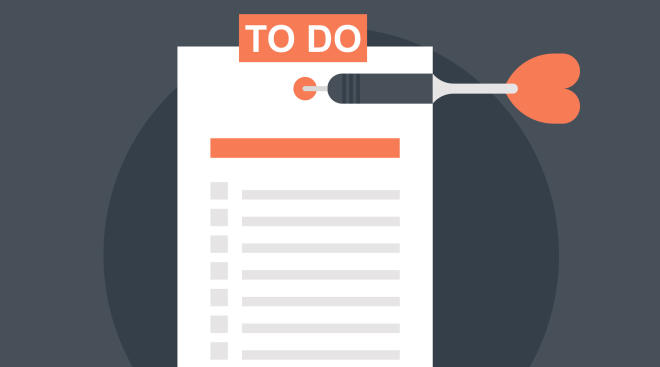How Long Does It Take to Get Pregnant?
Once you’ve decided you’re ready to have a baby, it’s understandable to want to be pregnant ASAP. But fertility is complicated, and it can be difficult to predict what your journey to parenthood will look like. Whether it’s taking a little longer than you hoped, or you just want to be mentally prepared, at some point you may wonder, How long does it take to get pregnant?
The answer isn’t cut and dry. “Fertility is so individual,” says Christine Greves, MD, a board-certified ob-gyn at the Winnie Palmer Hospital for Women & Babies in Orlando. Still, there’s some data that may help you get an idea of how long it may take to conceive, based on your age and other factors. Read everything you need to know, below.
It’s probably not what you want to hear, but there’s no universal answer to this question. How long it takes to get pregnant will vary from person to person. Some people get pregnant right after they start trying, but for others it’s a much longer process.
“There are many factors that contribute to a person’s ability to get pregnant, including age, medical history and partner,” says Priyanka Ghosh, MD, a reproductive endocrinologist at the Columbia University Fertility Center in New York City. “It’s difficult to predict for any individual. However, it’s thought that for a couple in their mid-20s with presumably no underlying issues, the chance of pregnancy in a given cycle is about 20 percent.”
The odds of getting pregnant go up the longer you try to conceive, of course: The American Pregnancy Association (APA) notes that 85 percent of people who are trying to get pregnant will have success within a year.
Going off birth control opens up the possibility of conception, but it can be “variable and hard to predict” how long it’ll actually take to get pregnant, says Ghosh.
You may start ovulating again within two weeks after you stop taking the pill or have an IUD removed—or it could take longer, Greves says. “I tell patients, ‘Take your prenatal vitamins three months before you stop your birth control, just in case you’re the lucky one that conceives right away,’” she says.
As for when you should start actively trying after you ditch the birth control, Ghosh recommends having a conversation with your doctor. The type of birth control you use can play a role in what their advice will be. “But in many cases, you can start trying soon after stopping birth control,” she says.
The odds of getting pregnant at any given moment depend on a lot of factors—but age can play a significant role. “We know that fertility does decline with age,” Ghosh says. “This is primarily due to a [decrease] in egg number and quality over time.”
There’s some data that can help give you an idea of how long it would take for you to conceive. For healthy couples in their 20s and early 30s, about 25 percent will get pregnant during any single menstrual cycle, according to the American College of Obstetricians and Gynecologists (ACOG). Those chances drop with time. By age 40, around 10 percent of ovulating people will get pregnant per cycle if they’re trying.
A man’s fertility declines over time too, but not very predictably. “We know that male fertility does decline somewhat with age, but not to the degree as seen in females,” Ghosh says.
Odds of getting pregnant by age chart
There is variability in your personal odds of getting pregnant. But if you want a general guide, consider these numbers.
If you prefer to just wait and see what happens while you’re trying to conceive, that’s more than fine. But experts say there are a few things you can do to try to speed up the process.
Tips on improving your fertility and strategies to try to get pregnant fast
Consider these steps to improve your odds of conceiving:
-
Track your cycle. The average menstrual cycle is 28 days, but everyone is different, Greves says. Most people tend to ovulate in the middle of their cycle, so planning to have sex around that time can be helpful, she says.
-
Plan when you have sex. While it’s not the most romantic way to conceive, planning when you have sex can increase the odds you’ll get pregnant. If you tend to ovulate on day 14 (the average), Greves suggests having sex on days 10, 12, 14, 16 and 18. “That can ensure that sperm is in there when the egg is released,” says.
-
Look for ovulation symptoms. Monitor your body, and check for some telltale signs of ovulation. You can also track your ovulation at home with the help of an ovulation predictor kit.
“It is also important to ensure both partners are healthy and that any chronic medical conditions are well-controlled,” Ghosh adds. To that end, consider scheduling a preconception visit with your provider before you start trying.
Sometimes it takes more time than expected to get pregnant, and that’s okay. At some point, though, you may wonder when it’s time to rope in a professional for help.
If you’re under 35, it’s advised that you talk to your doctor if you’ve tried to conceive for a year without success. The time frame is shorter if you’re older. “Generally, because of the impact we know that age has on fertility, if you’re over the age of 35, and have been trying for more than six months, this would also be a good time to seek help,” Ghosh says.
If you have a condition like endometriosis, it’s often helpful to talk to your doctor before trying to conceive, adds Greves.
Keep this advice in mind, per Ghosh: “There’s no right time to seek fertility help. But if you’ve been trying and have any concerns, it doesn’t hurt to talk to a fertility specialist.”
About the experts:
Christine Greves, MD, is a board-certified ob-gyn at the Winnie Palmer Hospital for Women and Babies in Orlando, Florida. She earned her medical degree from the University of South Florida.
Priyanka Ghosh, MD, is a reproductive endocrinologist at the Columbia University Fertility Center in New York City. She earned her medical degree from the University of Connecticut School of Medicine.
Please note: The Bump and the materials and information it contains are not intended to, and do not constitute, medical or other health advice or diagnosis and should not be used as such. You should always consult with a qualified physician or health professional about your specific circumstances.
Plus, more from The Bump:
Navigate forward to interact with the calendar and select a date. Press the question mark key to get the keyboard shortcuts for changing dates.
































